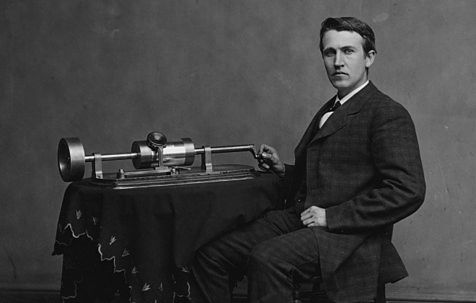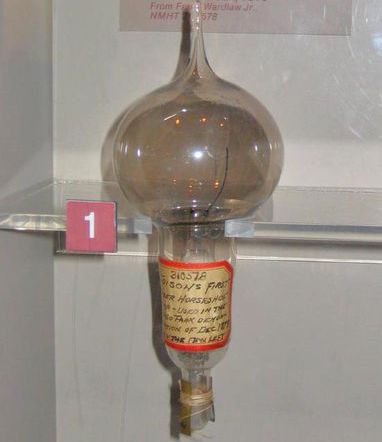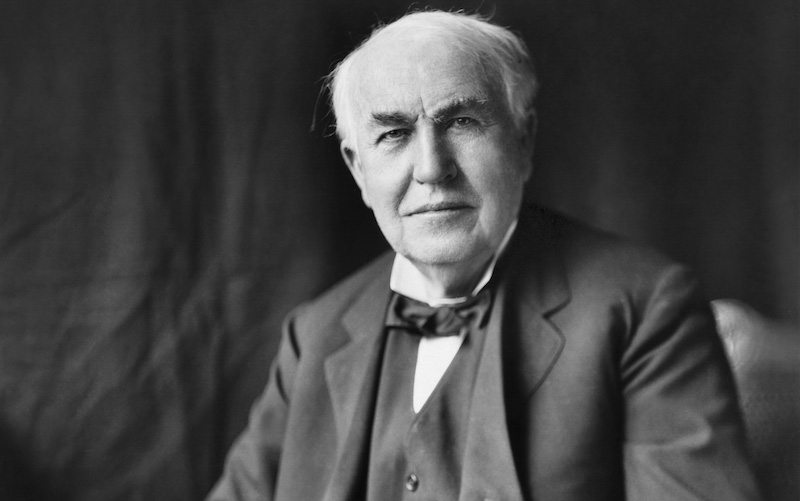Thomas Alva Edison
Episode #4 of the course “History’s greatest entrepreneurs”
Thomas Edison is commonly remembered as the man who invented the lightbulb and harnessed electricity, but he was a businessman who did much more. An inventor, Edison held the rights to over 1,000 patents worldwide. Born in 1847, he grew up surrounded by scientific discoveries about the properties of electricity, sound, and energies, and he combined engineering interests with business savvy and a strong entrepreneurial spirit. Edison’s empire included the power and manufacturing company, General Electric, which is still in operation today.
 Photograph of Edison with his phonograph (2nd model), taken in Mathew Brady’s Washington, DC studio in April 1878
Photograph of Edison with his phonograph (2nd model), taken in Mathew Brady’s Washington, DC studio in April 1878
As a teenager, Edison’s skill for business was evident. He began by obtaining the rights to print newspapers, and he started to experiment with inventing after learning to use the telegraph. He invented a stock ticker and patented his first piece of technology—an electric vote recorder—by the age of 22. In 1877, Edison released the first phonograph, which played sound recordings. It was a public sensation despite its low quality. He developed it further in the 1880s as competition rose, using funding from its sales to develop a quadruplex telegraph. After selling that for twice his asking price, he built his first industrial research laboratory at Menlo Park, where he often lived for weeks at a time while working on his many projects.
 Thomas Edison’s first successful light bulb model
Thomas Edison’s first successful light bulb model
For nearly 18 months, Thomas Edison worked to improve his ideas to design a functional light bulb. He founded the Edison Electric Light Company and publically demonstrated incandescent light in 1879, effectively laying the technological and industrial foundation of the 20th century. Edison was the worldwide champion for an electricity distribution network that utilized direct current (DC), and he is responsible for bringing most of the world “on the grid.” He continued to make improvements to the telegraph system, invented and patented a number of motion picture production equipments, and is credited for the invention of the first X-ray machine.
Quotes
“I have not failed. I’ve just found 10,000 ways that won’t work.”
“There is no substitute for hard work.”
“Our greatest weakness lies in giving up. The most certain way to succeed is always to try just one more time.”
“Opportunity is missed by most people because it is dressed in overalls and looks like work.”
“Of all my inventions, I liked the phonograph best.”
Recommended book
“Edison: A Biography” by Matthew Josephson
Share with friends

